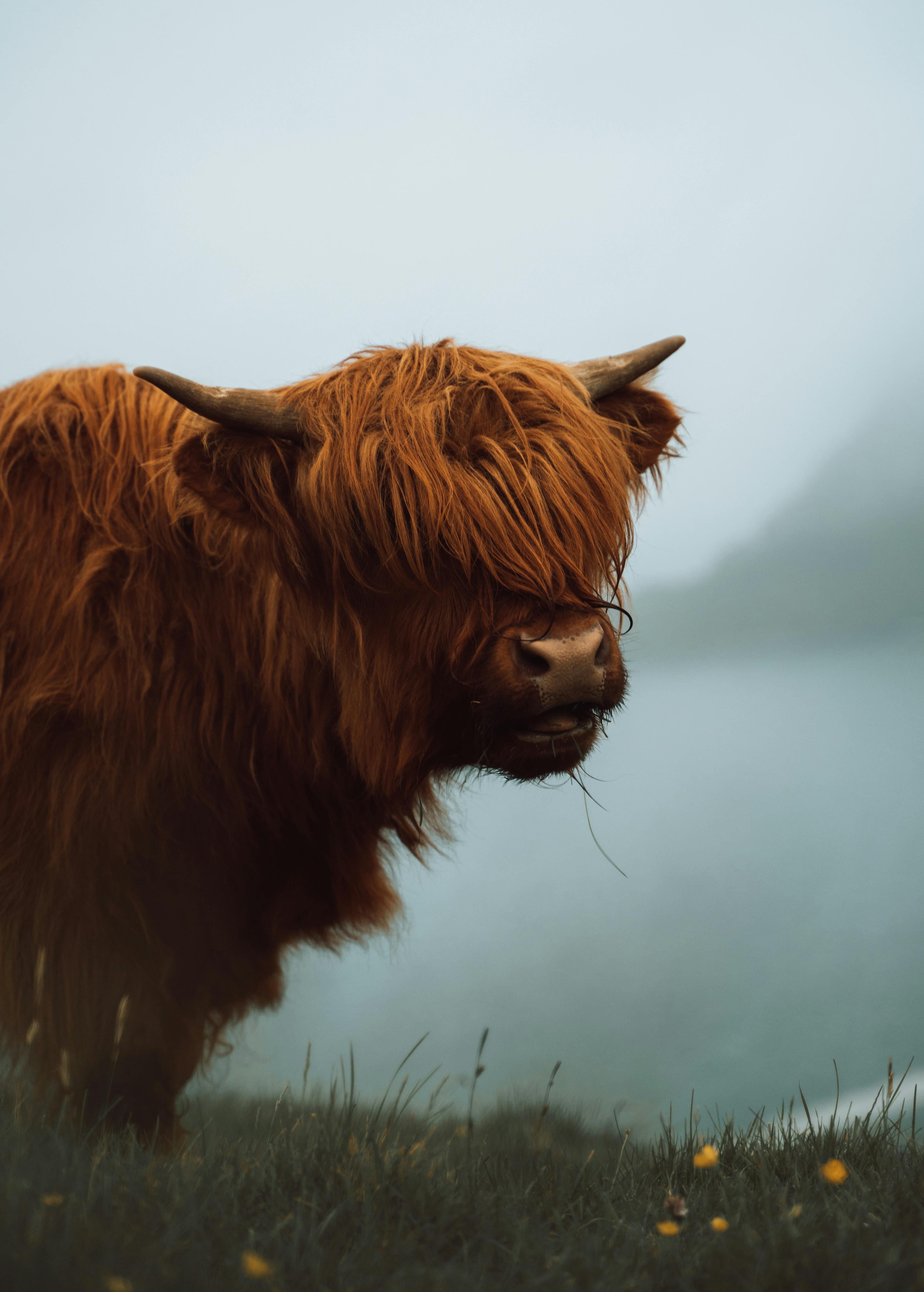Picture this: you’re out in the wilderness, enjoying a fresh cup of coffee with the warm sun on your face. Suddenly, you hear a rustle in the bushes, and before you know it, a massive bear emerges. Your heart skips a beat as you wonder – are bears attracted to coffee? In this article, we’ll explore the fascinating relationship between bears and coffee, uncovering the truth behind this intriguing question. Get ready for some surprising revelations!
Bear Behavior and Diet
General behavior of bears
Bears are fascinating creatures with a wide range of behaviors. They are known for their solitary nature, but some species, like the grizzly bear, can also be quite social. Bears exhibit different behaviors depending on the species and their environment. They are known to be curious and intelligent animals, which makes them highly adaptable to various situations. Bears often communicate through body language, vocalizations, and scent marking.
Bear diet and feeding habits
Bears have a diverse diet, and their feeding habits can vary depending on the availability of food sources. They are omnivorous, meaning they eat both plants and animals. Natural foods preferred by bears include berries, nuts, grasses, roots, insects, and fish. They are also opportunist feeders and will scavenge on carrion if it’s available. In areas with human settlements, bears may sometimes be attracted to human-related food sources, which can lead to conflicts.
Scent and Sense of Smell in Bears
The importance of scent for bears
For bears, their sense of smell plays a vital role in their daily lives. It helps them detect potential food sources, locate mates, avoid predators, and mark territory. Bears have an exceptional sense of smell that is estimated to be thousands of times stronger than that of humans. This heightened olfactory ability allows them to detect scents from great distances and enables them to have a keen awareness of their environment.
Bears’ exceptional sense of smell
Bears have an extraordinary sense of smell thanks to the well-developed olfactory receptors in their noses. These receptors are highly specialized for detecting a wide range of smells, making bears one of the most proficient scent users among mammals. Their ability to detect the faintest odors allows them to track prey or forage for food, even under challenging conditions. This exceptional sense of smell has evolved over time and is crucial for their survival in various habitats.

Coffee Aroma and Attractiveness
The strong aroma of coffee
Coffee is well-known for its distinct and inviting aroma. The rich, earthy scent of freshly brewed coffee can be particularly enticing to many people. The aroma is largely due to the volatile compounds released during the roasting and brewing process. It is this aroma that often attracts coffee lovers to their morning cup of joe, producing a sense of comfort and awakening.
Factors that attract animals to food sources
Animals are naturally drawn to strong-smelling food sources and can be attracted by various factors. The primary drivers that attract animals, including bears, to food sources are the smell, taste, and availability of the food. Strong odors can pique their curiosity and trigger feeding behaviors. For bears, the enticing aroma of coffee may stimulate their keen sense of smell, potentially leading them to investigate its source.
Food Preferences of Bears
Natural foods preferred by bears
Bears have specific food preferences that align with their natural diets. These preferences vary among species and can also be influenced by regional factors. In general, bears are drawn to berries, such as blueberries and blackberries, as well as nuts, grasses, roots, and insects. Fish, especially during spawning seasons, is also an important food source for many bears. These natural foods provide bears with essential nutrients and play a crucial role in their physiological well-being.
Bears’ tendency to explore new food sources
Bears are opportunistic feeders and are known to explore new food sources when their preferred choices are scarce. This behavior allows them to adapt to changing conditions and maximize their chances of survival. While bears are known to be cautious and hesitant to try unfamiliar foods, their curiosity and need for sustenance drive them to investigate new potential food sources that they encounter in their habitats.
Human-related food preferences
In areas where bears coexist with human settlements, they might develop a preference for human-related food sources. This can happen when bears, driven by hunger or curiosity, discover the availability of easily accessible food around humans, such as garbage or improperly stored food. When bears consume human-related food, they may develop a conditioned response, associating human presence with potential food rewards. This can create conflicts and potentially lead to dangerous interactions between bears and humans.

Potential Attraction of Bears to Coffee
Coffee as a strong smelling substance
The strong aroma of coffee, as mentioned earlier, can be quite enticing to many animals, including bears. The powerful scent of coffee can easily travel through the air, catching the attention of passing bears with their exceptional sense of smell. It is the distinct aroma and the potential for a new food source that might attract bears to coffee.
Studies or incidents suggesting bear attraction to coffee
While anecdotal evidence suggests that bears might be attracted to the smell of coffee, scientific studies confirming this phenomenon are limited. However, there have been occasional incidents where bears have shown a curiosity towards coffee. These observations raise questions about the potential appeal of coffee to bears and the need for further research to better understand this aspect of bear behavior.
Experiments and Research
Scientific studies conducted on bear reactions to coffee
Several scientific studies have been conducted to explore the reactions of bears to coffee or coffee-scented materials. These studies often involve controlled experiments or observational research to assess bear behavior and their response to coffee stimuli. They aim to investigate whether bears are indeed attracted to coffee and the factors that influence their attraction.
Insights gained from experiments
The experiments and research conducted on bear reactions to coffee provide valuable insights into the behavior and preferences of bears. While the studies are ongoing and further research is needed, preliminary findings suggest that bears may exhibit varying levels of interest in coffee-based scents. The intensity of attraction may depend on the individual bear, its current food availability, and the context in which it encounters coffee-related odors.

Factors Influencing Bear Behavior
Availability of natural food sources
The availability of natural food sources greatly influences bear behavior. When their preferred natural foods are abundant, bears are less likely to seek out human-related food sources. However, in times of food scarcity, they may become more opportunistic and may explore alternative food options, including those associated with humans. Conservation efforts should focus on maintaining healthy ecosystems with an abundance of natural food sources to minimize bear-human conflicts.
Bear behavior during different seasons
Bear behavior can also vary throughout different seasons. During the spring and summer, when natural food is abundant, bears typically spend more time foraging and accumulating fat reserves. As winter approaches, bears enter a period of reduced activity known as hibernation. Understanding the seasonal patterns of bear behavior is crucial for effectively managing potential interactions between bears and humans.
Impacts of anthropogenic influences
Humans greatly influence bear behavior through various activities and practices. Human settlements can alter bear habitat, fragment forests, and change natural food availability. Improper food storage and waste management in bear country can attract bears to human-related food sources, leading to an increased risk of conflicts. Balancing human activities with bear conservation is essential to minimize negative impacts on bear behavior and maintain the integrity of bear habitats.
Bear and Human Interactions
Risks associated with bears near human settlements
When bears come into close proximity to human settlements, their natural behaviors can pose potential risks. Bears, driven by their need for food and territory, might exhibit aggressive behaviors if they feel threatened or encounter perceived food rewards. This can result in property damage, injuries, and even fatalities for both bears and humans. Minimizing bear-human interactions is crucial to ensure the safety of both parties.
Potential consequences of attracting bears with coffee
If bears become attracted to coffee, it can lead to a range of consequences. Bears may become habituated to the presence of humans and seek out food rewards, leading to increased conflicts. Additionally, bears that frequently encounter and consume human-related food can experience negative health effects, rely less on their natural diet, and become more reliant on artificial food sources. This can disrupt the balance of their ecosystem and threaten their long-term survival.
Preventive Measures for Bear Attraction
Proper food storage in bear country
One of the most effective preventive measures to reduce bear attraction is proper food storage in bear country. This involves securely storing food, garbage, and other potential attractants in bear-resistant containers or designated storage areas. By minimizing the availability of human-related food sources, the chances of bears being attracted to settlements are significantly reduced. It is vital for residents and visitors in bear habitats to adhere to these guidelines for both bear safety and coexistence.
Bear-resistant containers
Bear-resistant containers are specifically designed to prevent bears from accessing stored food or garbage. They are made of sturdy materials that bears cannot easily break or open. Using bear-resistant containers for waste management and food storage can greatly reduce the potential attractants that might draw bears closer to human settlements. This approach is an important part of responsible living in bear country.
Other tips for preventing bears from being attracted to coffee
Apart from proper food storage, there are other preventive measures individuals can take to minimize bear attraction to coffee. These include cleaning coffee-related materials thoroughly to reduce residual smells, avoiding leaving coffee grounds or leftover beverages outside, and being mindful of properly disposing of coffee products in bear-resistant containers. By being conscious of these actions, individuals can help mitigate potential conflicts between bears and human activities.
Conclusion
In conclusion, bears exhibit various behaviors and have a diverse diet that includes both natural and human-related food sources. Their exceptional sense of smell plays a crucial role in their survival and can attract them to strong-smelling substances like coffee. While scientific studies are ongoing, the limited evidence suggests that bears may be attracted to coffee-related scents to varying degrees. Factors influencing bear behavior include the availability of natural food sources, seasonal patterns, and anthropogenic influences. Preventive measures, such as proper food storage and the use of bear-resistant containers, can help minimize bear attraction and promote coexistence between bears and humans. It is essential to prioritize bear conservation and educate individuals on responsible behavior to ensure the long-term survival of these magnificent creatures.
